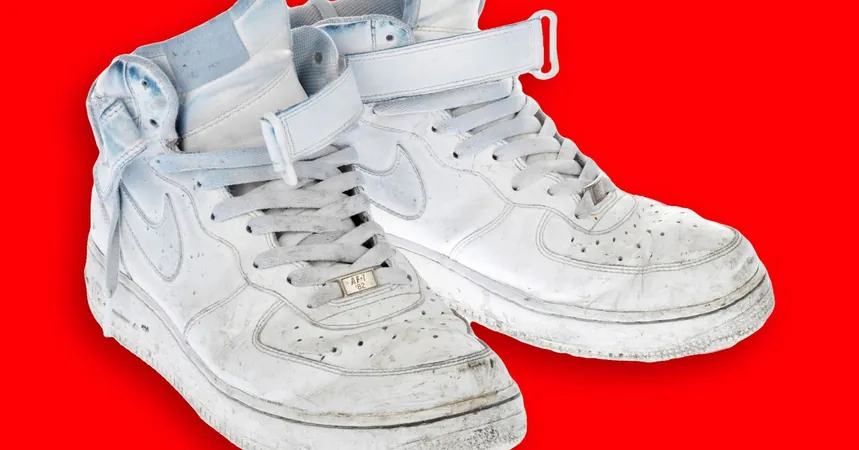
Nike's Leadership Shake-Up: Can Elliott Hill Revive the Brand’s Glory Days?
2024-09-24
Nike's Leadership Shake-Up
In a stunning turn of events, John Donahoe has stepped down as CEO of Nike amid escalating criticism of the company's recent performance. His resignation comes after a challenging period characterized by dwindling sales, disappointing product innovation, and disrupted partnerships with retailers. A particularly alarming earnings report on June 28 saw Nike's market cap plummet by $28 billion, the steepest decline since its 1980 IPO. Projections indicating mid-single-digit revenue drops for fiscal 2025 only added fuel to the fire, prompting investors to question the company's direction.
Industry experts had hinted at a brewing storm for some time. Donahoe was hired in late 2019 from the tech world with a hefty mandate to pivot Nike toward a digitally-focused strategy. Initially, this approach seemed justified during the pandemic when ecommerce flourished. However, as consumers began gravitating again toward in-person shopping experiences, Nike's aggressive direct-to-consumer (DTC) strategy seemed increasingly out of touch, neglecting traditional strengths such as innovative product development and culturally relevant marketing.
As niche brands like Hoka and On Running prioritized innovative products and community-engagement strategies, Nike found itself ensnared in a cycle of digital initiatives that failed to resonate with core audiences. Their over-reliance on DTC strategies inadvertently alienated vital wholesale partners, and now, the ramifications of that oversight have come to roost.
Enter Elliott Hill, a veteran of Nike who has re-assumed the helm. With a career at the company spanning decades, Hill is seen as a beacon of hope for revitalizing the brand. After a three-year decline of around 25% in share value during Donahoe's tenure, stocks surged by 6% upon Hill's return, with investors seemingly optimistic about his intimate understanding of Nike’s core values and history.
Despite initial optimism, industry watchers caution that revitalizing the iconic brand will be anything but easy. “The damage done in such a short time is staggering,” remarked Alex Ropes, CEO of fashion and streetwear community The Basement. Hill will have to undo many of Donahoe's strategies and reinvest significantly to reclaim Nike's previous stature.
The DTC Gamble: Gains and Losses
Donahoe's tenure began as the second-ever outsider to lead the company, with hopes that his tech industry experience could usher in a new era. He focused heavily on expanding Nike's DTC sales, launching various digital initiatives that initially appeared to pay off. However, once physical retail reopened, it became evident that the company had sacrificed vital relationships with this pivot.
While Donahoe sought to create a tech-driven identity, competitors thrived by rediscovering a balance between innovation, cultural relevance, and engaging marketing—areas where Nike had let industry newcomers outpace it. This splitting approach ultimately resulted in a significant loss of brand cachet, as the company broadened its focus away from gritty authenticity to a clinical, data-driven advertising method.
A Disconnect in Innovation
Under Donahoe, innovation stagnated. The introduction of new technologies was eclipsed by competitors employing game-changing advancements. Nike’s once-legendary designs struggled to compete against the likes of Adidas's Boost or Hoka’s Meta-Rocker. Increasingly, the brand began reissuing nostalgic items like the Panda Dunk rather than forging ahead with groundbreaking products, a move that only left enthusiasts feeling underwhelmed.
The corporate ethos also seemed to shift, with reports of an exclusionary culture harming both employee morale and creativity. After allegations regarding the treatment of female employees in 2018 surfaced, many long-standing members of the team began to depart, undermining the very creative culture that had propelled Nike to its storied heights in the first place.
The Quest for Cultural Relevance
Despite the turmoil, Nike still reigns as the leading global sportswear brand, generating impressive revenues. Experts suggest that embracing local manufacturing and active community engagement could rejuvenate Nike's approach, allowing the brand to regain its innovative edge.
Alongside operational shifts, Hill’s primary objective will be restoring essential relationships with retailers and collaborators who were pivotal in building Nike’s reputation over decades. Revitalizing these connections and recapturing aspirational branding could be key for the company's recovery.
“If Nike can reestablish that emotional connection—making their products feel rare, aspirational, and exclusive again—they stand a real chance to reclaim their former glory,” Ropes noted. Indeed, the success of this endeavor hinges not only on strategic adjustments but also on rekindling a cultural heartbeat that resonates with consumers in a profound, relatable way.
Only time will tell whether Elliott Hill possesses the vision and drive to steer Nike back to its glory days, but one thing is certain: the world will be watching.









 Brasil (PT)
Brasil (PT)
 Canada (EN)
Canada (EN)
 Chile (ES)
Chile (ES)
 España (ES)
España (ES)
 France (FR)
France (FR)
 Hong Kong (EN)
Hong Kong (EN)
 Italia (IT)
Italia (IT)
 日本 (JA)
日本 (JA)
 Magyarország (HU)
Magyarország (HU)
 Norge (NO)
Norge (NO)
 Polska (PL)
Polska (PL)
 Schweiz (DE)
Schweiz (DE)
 Singapore (EN)
Singapore (EN)
 Sverige (SV)
Sverige (SV)
 Suomi (FI)
Suomi (FI)
 Türkiye (TR)
Türkiye (TR)